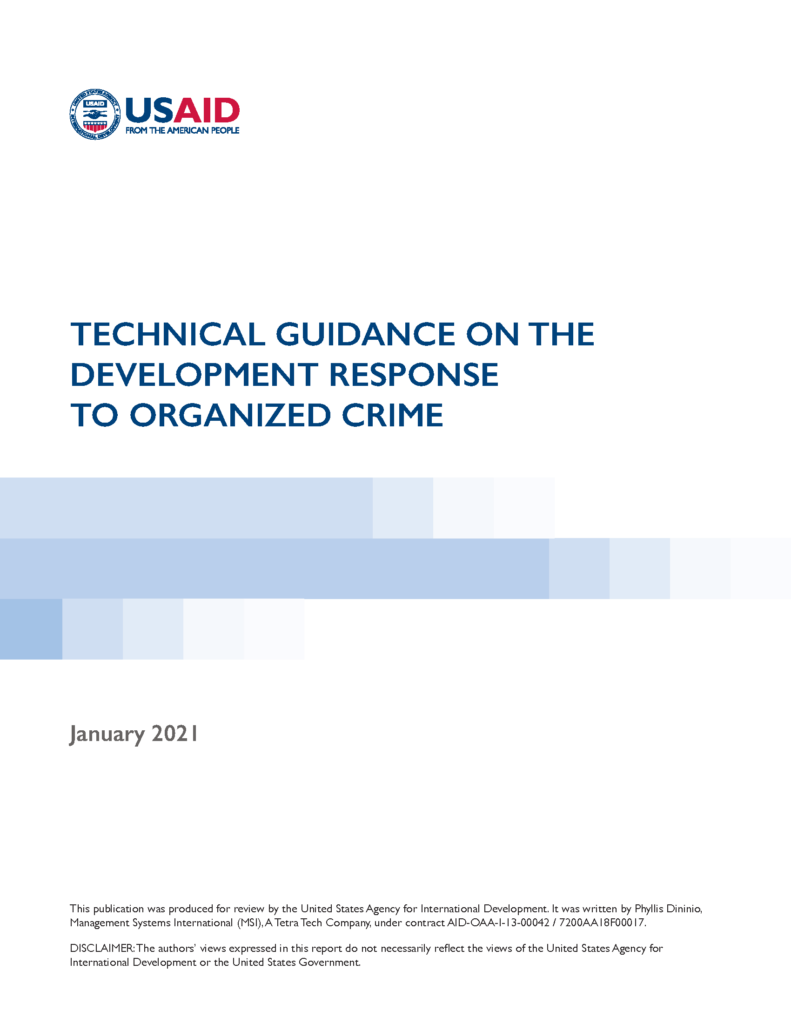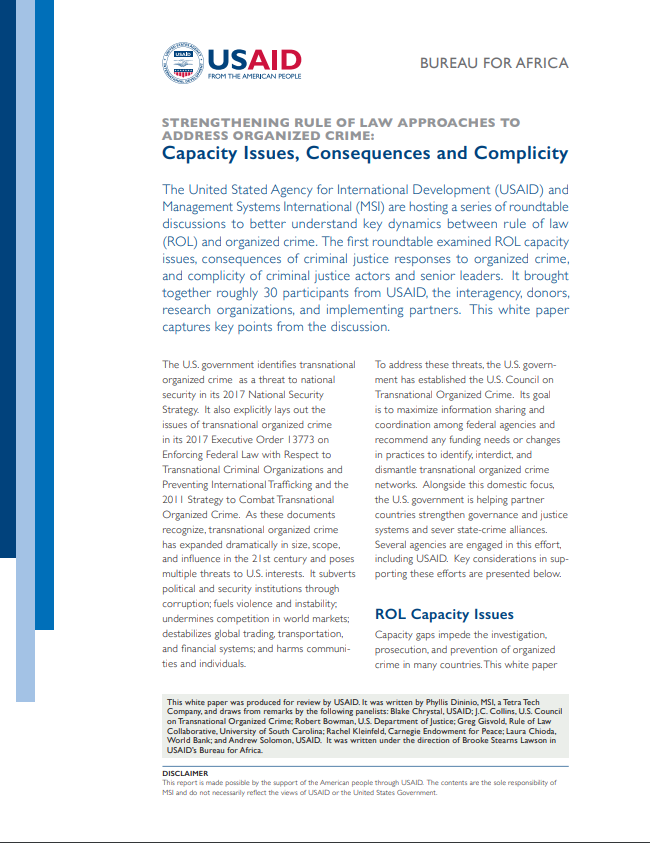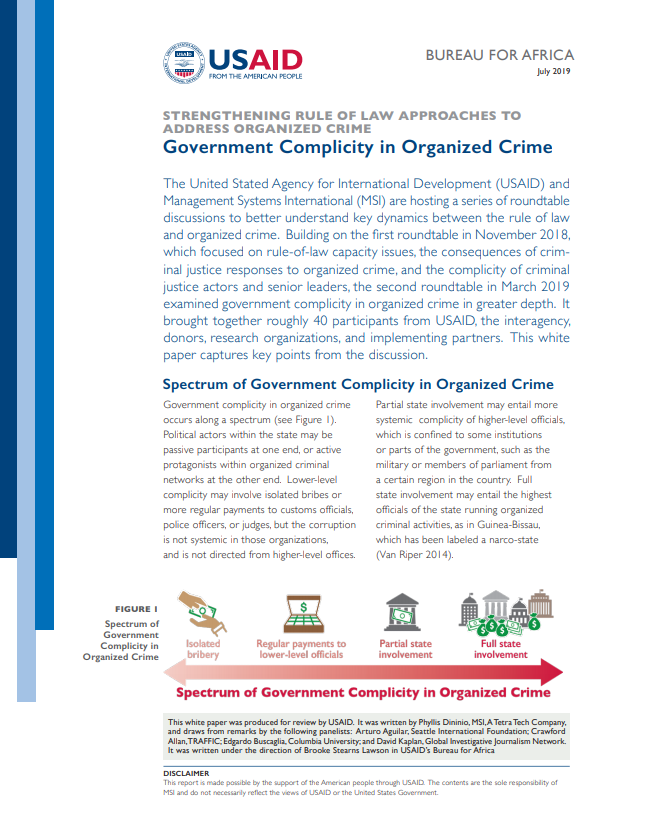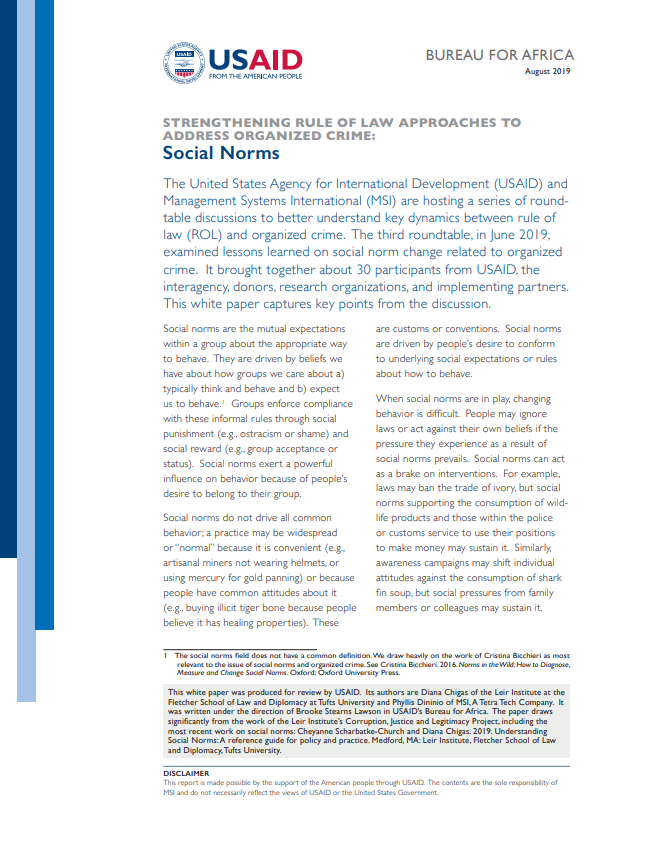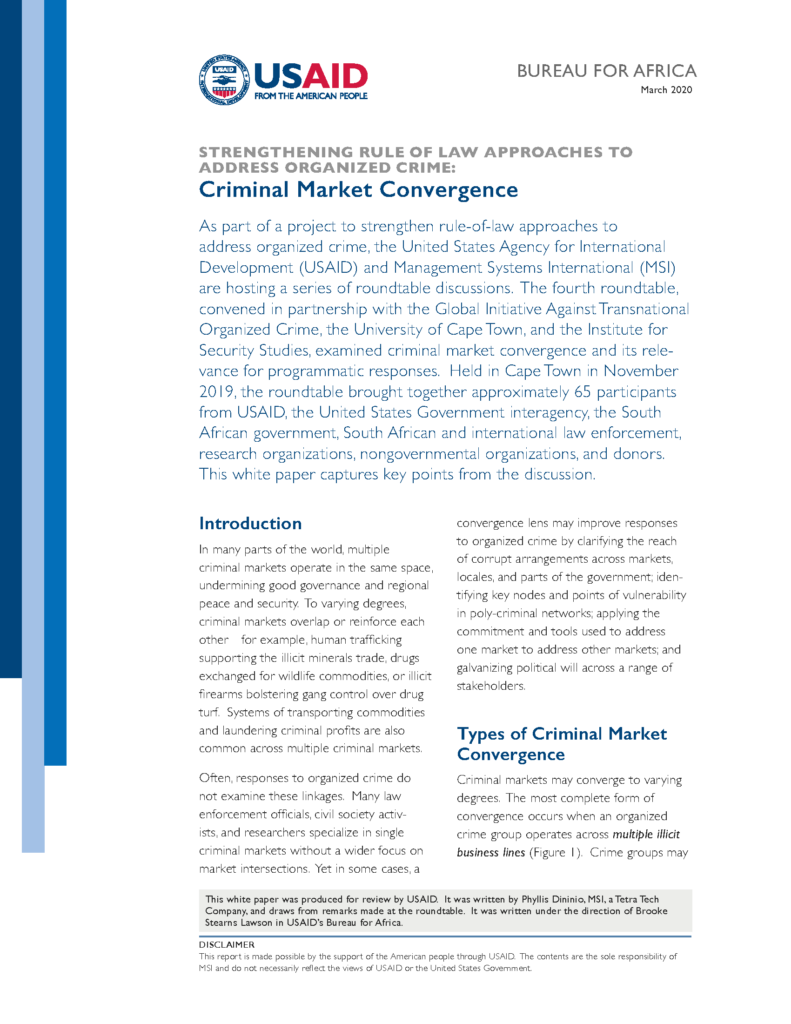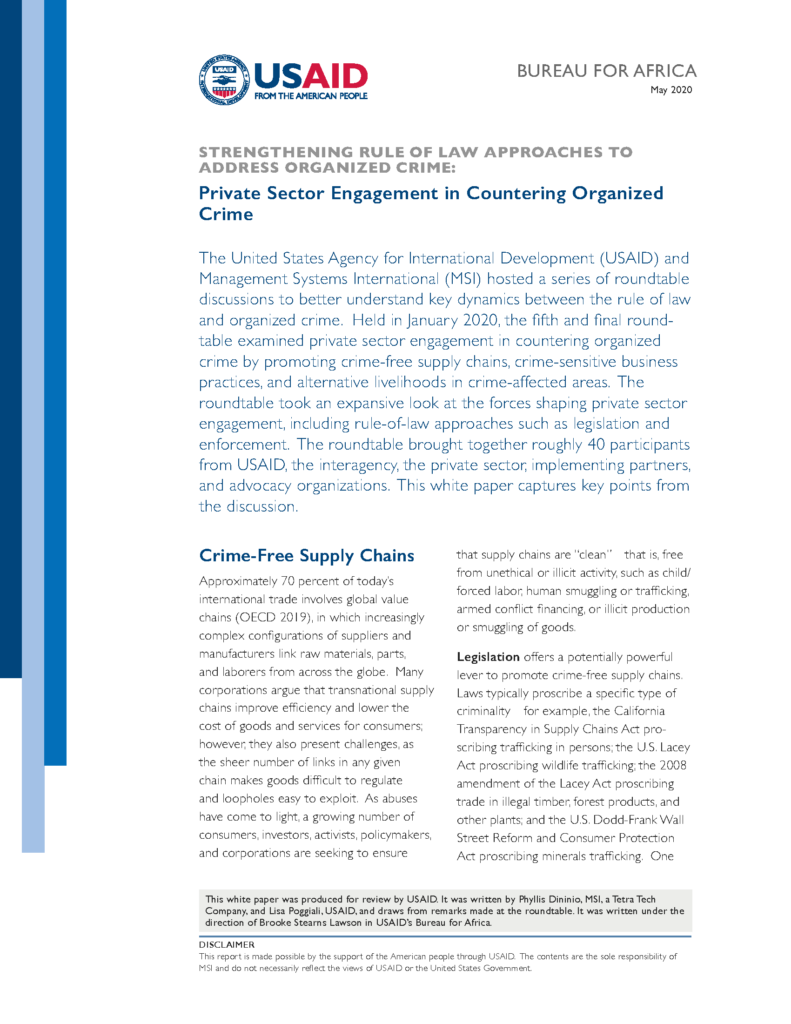
From 2018 to 2021, the United States Agency for International Development (USAID) and MSI, A Tetra Tech Company, undertook research on organized crime, culminating in USAID’s Technical Guidance on the Development Response to Organized Crime. The guidance draws from three case studies, a review of relevant USAID programming, expert interviews, a literature review, and five roundtable discussions. The roundtables brought together practitioners, academics, government officials, and civil society actors to examine commonalities and differences across various forms of organized crime and collect insights to inform programming. Five corresponding white papers provide summaries of this learning.
Technical Guidance on the Development Response to Organized Crime
This technical guidance is the culmination of research initiated by USAID’s Bureau for Africa in 2018 on the development response to organized crime. It aims to help USAID, other development actors, and other U.S. Government personnel design and implement more effective interventions to counter organized crime.
Capacity Issues, Consequences and Complicity
This white paper diagnoses ROL capacity challenges that weaken responses to organized crime, describes some pitfalls in criminal justice responses to it and outlines the cost of state complicity. This paper suggests methods for a more proactive approach to investigating organized crime, ways to strengthen deterrence, and routes for addressing complicity.
Government Complicity in Organized Crime
This white paper examines government complicity in organized crime and explores strategies to reduce it. Strategies for tackling government complicity depend on the extent of complicity and opposition to organized crime at various levels of government. Four scenarios for reform are outlined, ranging from complicity that is confined to low-level officials with high-level opposition, to a worst-case scenario in which high-level officials are complicit. The paper suggests a range of anti-complicity initiatives in the judicial, economic, political and social domains.
Social Norms
This white paper examines lessons on social norm change related to organized crime. When social norms are at play, changing behavior is difficult. People may ignore laws or act against their own beliefs if the social pressure experienced from social norms prevail. The paper discusses a range of factors that contribute to social norms and behavior and provides good approaches for generating social norm change.
Criminal Market Convergence
This white paper examines criminal market convergence and its relevance for programmatic responses. In some cases, a convergence lens may improve responses to organized crime by clarifying the reach of corrupt arrangements across markets, locales, and parts of the government; identifying key nodes and points of vulnerability in poly-criminal networks; applying the commitment and tools used to address one market to address other markets and galvanizing political will across a range of stakeholders.
Private Sector Engagement in Countering Organized Crime
This white paper examines lessons learned from private-sector efforts to counter organized crime by promoting clean supply chains, crime-sensitive business practices, and alternative livelihoods in crime-affected areas. Clarifying the business case, creating multi-stakeholder partnerships, and broadening commitments from isolated companies to industries or regions as a whole emerge as best practices for sustainable corporate engagement.
